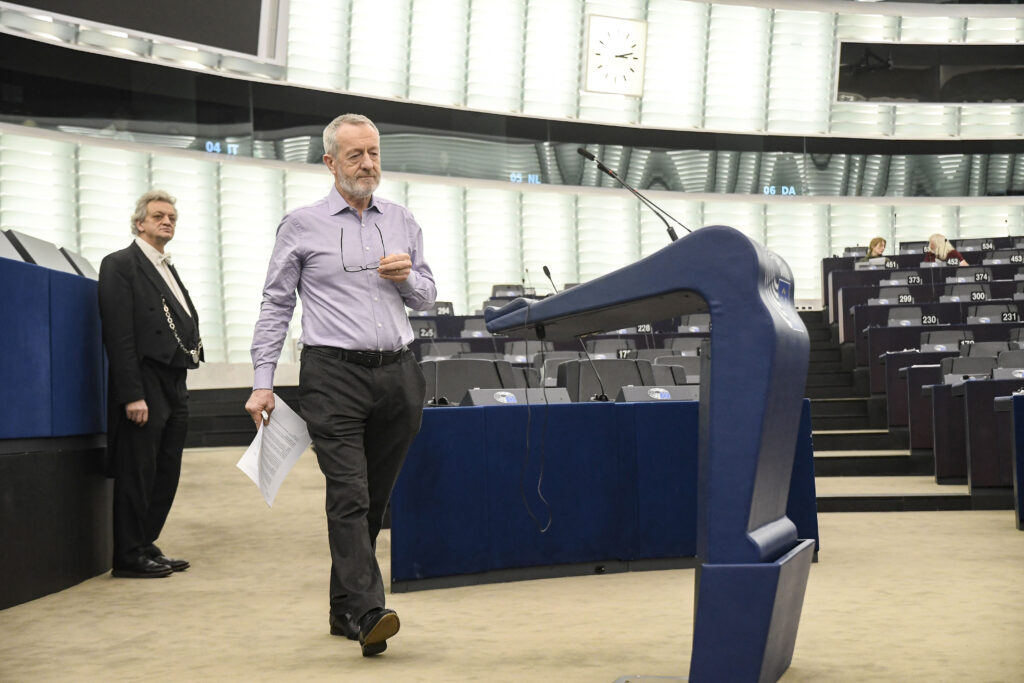Published: Tue, 14 March 2023
Share this

Seán Kelly MEP secured the majority vote of the largest political grouping in the EU Parliament, the EPP, in favour of new rules to improve the energy efficiency of Europe’s buildings.
Today, the Parliament voted by ?? in favour, ?? against and ? abstentions to adopt its position on the revision of the Energy Performance of Buildings Directive (EPBD) – a key tool to decarbonise the EU’s building stock while enabling citizens to afford mass-scale renovations.
“This is a very important vote in favour of tackling the buildings sector, which is responsible for 40 percent of EU emissions, in line with our climate goals. Decarbonising our building stock is a complex challenge to say the least – exacerbated by the current energy and cost of living crises. Negotiations have been extremely difficult”, MEP Kelly said after today’s vote.
“In leading negotiations for the biggest political group, the European People’s Party, I was determined that a compromise agreement could be found to keep the EU on course to achieve climate neutrality by 2050, while avoiding heavy cost burdens for homeowners who are already under financial pressure in many cases.
“After months of negotiations, we finally have the right toolkit to address this quagmire head-on – the energy performance of buildings directive (EPBD). However, we faced strong opposition, particularly from the far-right. However, I ensured a majority vote in favour of this position from within my own centre-right EPP Group. Without the majority of the EPP voting in favour today, the EPBD proposal would not have been adopted. That is a fact”, Kelly underlined.
The Ireland South MEP has warned that higher energy costs will hit the pockets of people in worst-performing buildings 10 times harder than those in energy-efficient buildings.
“The obvious answer is to renovate our buildings, where possible, so they consume less energy and are capable of using cheaper and greener renewable sources. A massive upscaling of renewable energy resources alone would not be enough, or technically feasible, to reach our 2030 and 2050 climate goals, without increased renovations and structural measures in the building sector.”
Kelly also hit out misinformation circulating on the potential impact the new rules would have on homeowners: “Nobody is going to be thrown out of their home if they cannot renovate nor will Europe’s cherished buildings be torn down. It is for this reason that we sent a strong signal to citizens by deleting references to penalties proposed by the European Commission. There are many benefits to renovations and that is what we want to highlight”.
The real enforcement mechanism will be the market itself, according to Kelly: “The EPBD is as much about asset protection as it is about climate change. Buildings with low-rated energy performance certificates will be less valuable regardless of the EPBD. Without this Directive, we would make it harder for people to renovate”.
The EPBD also holds the significant added value of job creation if implemented. 18,000 long-term jobs will be created for every €1 billion invested in energy efficiency, for example.
Kelly warns that government grants and loans will only stretch so far – funding gaps are inevitable: “That is where the EPBD can provide solutions by strengthening links between the financial and the building sectors. It will ensure banks have appropriate access to data so that they can properly assess risks and offer the most attractive products to consumers. It will support an EU-wide renovation guarantee fund to enable credit institutions to reduce their risk exposure on green mortgages portfolios.
“Europe has thousands of beautiful buildings that hold historical and architectural importance. These buildings are part of our history and culture, so we have underlined the importance of protecting their character alongside efforts to decarbonise”, Kelly added.
Negotiations between the EU Parliament and the Council (Member States) will get underway before the new rules are finalised and become law.